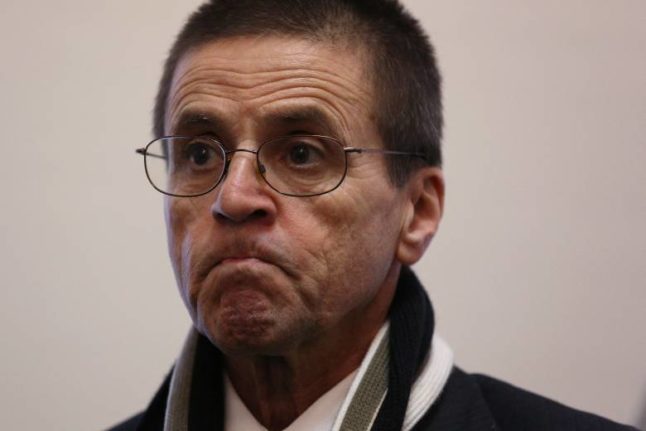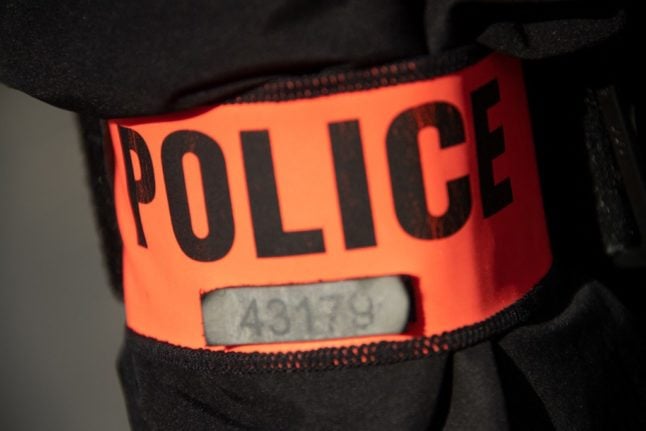The court followed the prosecutors’ request for the maximum possible punishment against Hassan Diab, now 69 and a resident of Canada, a decision that was met with silence in court.
Some victims and their families could be seen embracing at the end of three weeks of proceedings during which the suspect’s box remained empty throughout.
Prosecutors had said in their closing arguments Thursday that there was “no possible doubt” that Diab, the only suspect, was behind the attack.
Diab, speaking to reporters in Ottawa, called the verdict “Kafkaesque” and “not fair.”
“We’d hoped reason would prevail,” he said, adding that he expects Canada not to send him back to France to serve the sentence.
In the early evening of October 3, 1980, explosives placed on a motorcycle detonated close to a synagogue on the Rue Copernic in Paris’s chic 16th district, killing a student passing by on a motorbike, a driver, an Israeli journalist and a caretaker.
Forty-six others were injured in the blast.
The bombing was the first deadly attack against a Jewish target on French soil since World War II.
No organisation claimed responsibility but police suspected a splinter group of the Popular Front for the Liberation of Palestine.
French intelligence agents in 1999 accused Diab of having made the 10-kilogramme (22-pound) bomb.
They pointed to Diab’s likeness with police sketches drawn at the time and handwriting analyses that they said confirmed him as the person who bought the motorbike used in the attack.
They also produced a key item of evidence against him — a passport in his name, seized in Rome in 1981, with entry and exit stamps from Spain, where the attack plan was believed to have originated.
In 2014, Canada extradited Diab at the request of the French authorities.
However, investigating judges were unable to prove his guilt conclusively during the investigation and Diab was released, leaving France for Canada as a free man in 2018.
Three years later, a French court overturned this earlier decision and ordered that Diab should stand trial on charges of murder, attempted murder and destruction of property in connection with a terrorist enterprise.
Canada’s Prime Minister Justin Trudeau said at a press conference after the verdict was announced that “we will look carefully at next steps, at what the French government chooses to do, at what French tribunals choose to do”.
“But we will always be there to stand up for Canadians and their rights,” he said.
Denials
Most of the evidence presented against Diab was based on intelligence sources, and his lawyers had again argued the case should be thrown out.
“I’m in front of you to avoid a miscarriage of justice,” celebrity defence lawyer William Bourdon told the court Thursday, saying that an acquittal was “the only judicial decision possible”.
Diab has claimed he was sitting exams in Lebanon at the time of the attack, backed up by statements from his ex-partner and former students.
His conviction means he will now again become the subject of an arrest warrant, which risks stoking diplomatic tensions between France and Canada after his first extradition took six years.
David Pere, a lawyer for some of the people present in the synagogue at the time of the bombing, said his clients were “not motivated by vengeance nor looking for a guilty person’s head to stick on a pike… they want justice to be done”.
Diab has won some backing from NGOs, including Amnesty International, who said his assertion that he was in Lebanon at the time of the attack was credible.



 Please whitelist us to continue reading.
Please whitelist us to continue reading.
Member comments